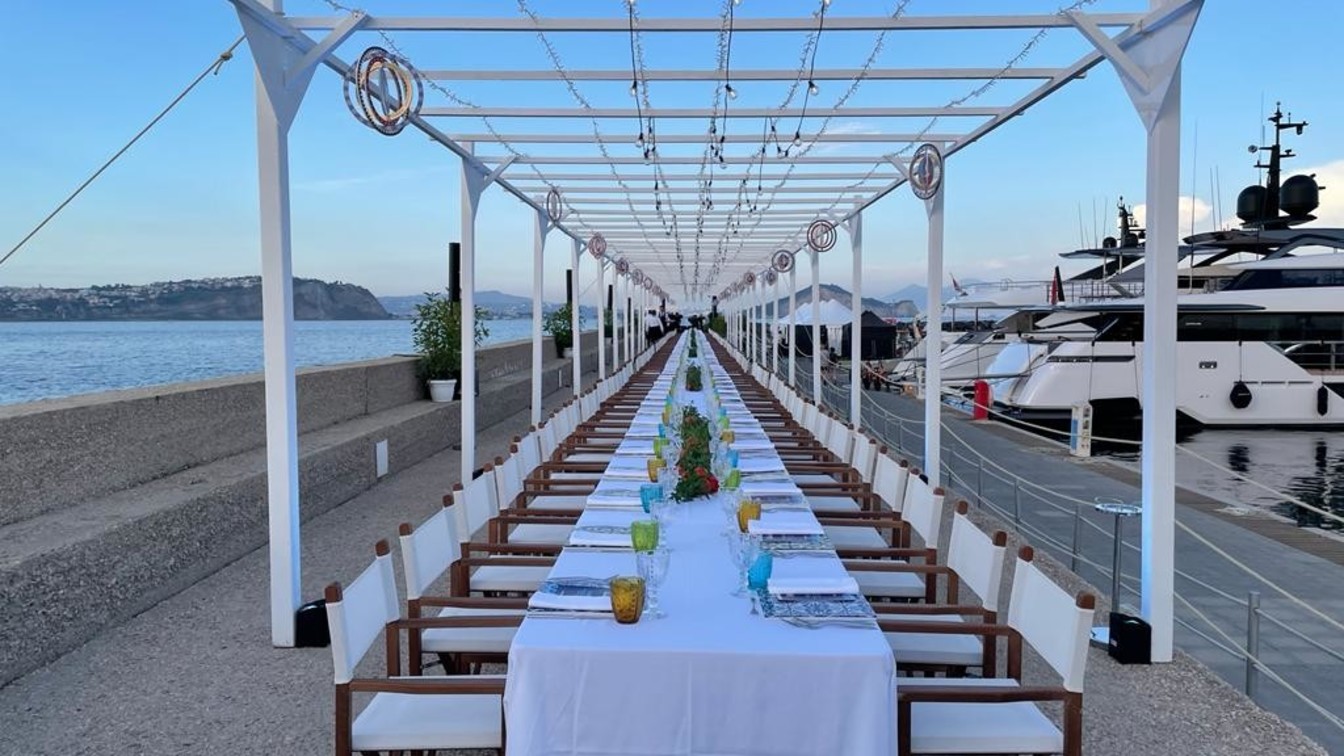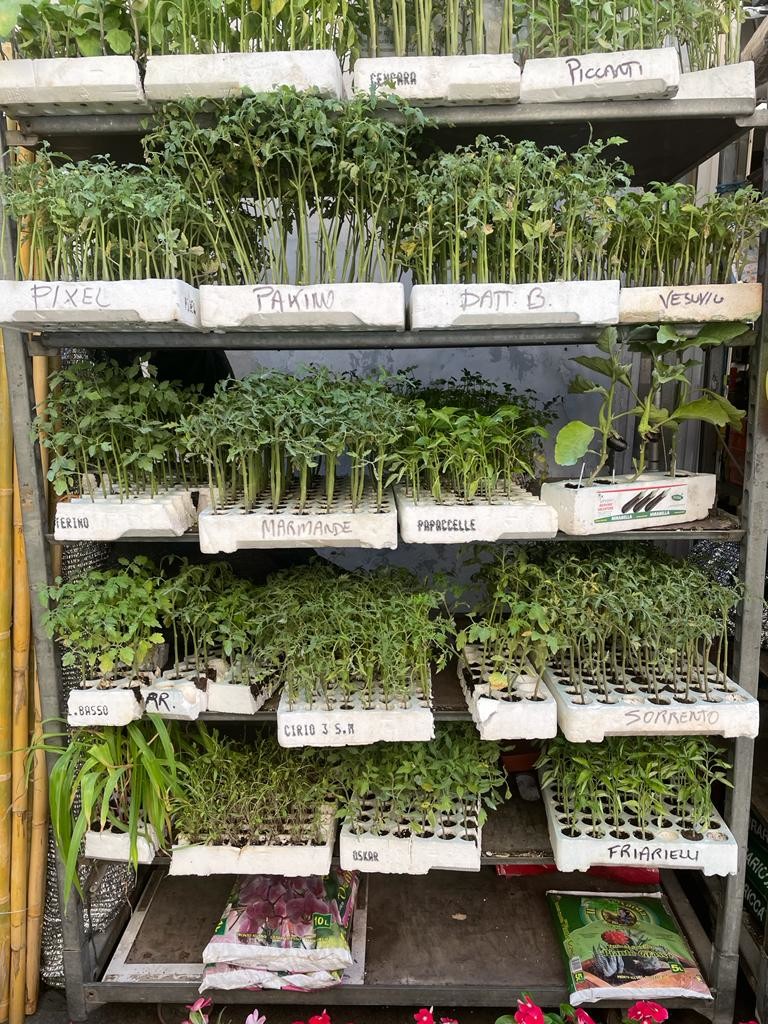

“Only the best of the best.” This is what Giovanni Voiello used to say about his pasta and this is what the company repeats today in its advertising slogans. It’s been 143 years since Voiello began and production to the highest standards is a duty to be fulfilled in honor of the founder, of Neapolitan tradition and of the consumers, who have become more and more demanding over time. Voiello is ready to be judged by the most sophisticated palates and to become a champion of the Campania spirit: life is a pleasure that must be lived to the full, in company. With this spirit, Voiello has chosen to be the main sponsor of Procida, the Italian Capital of Culture and to organize the cena esagerata (exaggerated dinner) open to 150 guests. Do we risk presenting ourselves again to the world as spaghetti and mandolins? Not according to Carolina Diterlizzi, VP Marketing Italy for Barilla, who believes culture and gastronomy can go together with honor.
“Pasta is also an art,” she explains “and for Voiello, the choice to be part of Procida Capital of Culture 2022 was natural. The values go hand in hand: promotion of territory and roots, attention to quality, hospitality. The Naples region is fertile with great messages of generosity and wealth, the same as found in the DNA of Voiello. We are on Procida with the intention of building something that will last over time; we want to leave a mark, with concrete initiatives.”
Pasta is also an art, and for Voiello, the choice to be present in Procida Capital of Culture 2022, was natural.
The first were the illuminations created by the artists Domenico Pellegrino “who made light the signature of his art” and by Claudia Bartoli, professor at the Academy of Fine Arts. The work seeks to enhance the noble and ancient art of local village lights and to be a tribute by Voiello to the island as wet nurse to Aeneas. Food and spiritual nourishment, therefore, in honor of goodness and beauty. Even the ‘exaggerated dinner’ on the Marina Grande pier is a way to talk about Procida and celebrate the sea, nature and good food.
“An exaggerated dinner,” continues Carolina, “because, in the soul of Voiello, there is generosity, wealth, the appropriation of pleasures. A big table overlooking the poignant beauty of the landscape between the island and the mainland with Vesuvius in the background. The guests include people from the island and the region, to communicate the sense of hospitality and union. Theirs is the honor of savoring Voiello pasta prepared with local ingredients according to the recipes of the island’s chef Marco Ambrosino. The dinner is accompanied by an extraordinary homage to classic Neapolitan music with Peppe Servillo and the Solis String Quartet.”
Tourists who visit Procida this year will find a welcome kit in their rooms in hotels and B&Bs: a box containing a limited edition pack of Gran Penna Ruvida, a special pasta neither smooth nor grooved but, indeed, very ruvida (rough) and made only with 100% Italian Aureo Wheat; a set of recipes created by chef Ambrosino and a special photo frame for the most panoramic views and the pleasurable moments spent on the island. “We want those who come to Procida to take the pleasure of Voiello pasta and local ingredients home with them to continue the experience”.
“Pasta is not a stereotyped vision; it is culture in the broad sense. There is nobility in knowing how to value traditions and the way we do things.”
“Pasta,” emphasizes Carolina, “is part of Italian know-how, of enjoying life without the sacrifices, right down to the last bite. It is not a stereotyped vision; it is culture in the broad sense. There is nobility in knowing how to value traditions and the way we do things.”
This ability certainly applies to Peppe Servillo, “who has an extraordinary capacity to convey the positive energy of the spirit of Naples in just a few notes.” Just like Domenico Pellegrino, a Sicilian artist with an extraordinary sensitivity that makes him uniquely suited to illuminating our presence in Procida.”
But how can Voiello preserve and maintain its uniqueness within a large industrial group like Barilla?
“We value Voiello 100%: not as a brand, but as a real company with an ancient history. It all started with a Swiss engineer who came to Italy to build the Naples-Portici railway and fell in love with the daughter of a pasta maker; Swiss discipline combined with Neapolitan intuition and know-how. Then their grandson transformed the pasta factory into an industry. We continue to produce in the factory built after the Second World War, commissioned by Giovanni Voiello, in Marcianise, in the province of Caserta. Strong roots are essential to maintain Voiello’s quality, experience and value. We use the Aureo wheat specially selected for us and grown in Campania, Puglia, Molise and Basilicata: a guarantee of the uniqueness of the product. This grain has the protein content necessary to ensure the quality, hold, the particular flavor; it guarantees the balance between sensory, olfactory and color experience, to make the experience excellent”.
Being from Campania therefore makes the difference and the company does everything to communicate this: “It is a key point, it is in our identity card, we hand down an ancient know-how. We want to convey the energy and creativity of the people of Naples, all the beauty that the world envies us: knowing how to enjoy life with joy, generosity, passion. Not a stereotypical city but a real city that offers pleasure and voluptuousness in all its forms, even eating a plate of pasta according to true Neapolitan tradition.” And Procida? “The values of Procida Capital of Culture are inclusion and generosity: key elements for the development of the territory that are part of our DNA.”
Visitors to the island are offered penne by Voiello: has spaghetti lost its appeal? What are the consumer trends?
“Spaghetti,” replies Carolina, “are a principle of Italian eating. Italians are very attached to classic formats but, on the other hand, they like to experiment with new shapes or variations within classic pastas. So, spaghetti have got thicker; the bigger ones are more popular now. But what matters is the ability to adapt the flavor to the format. Linguine are still preferred for clams. The trend is to try rich and tasty experiences (therefore thicker and more substantial shapes) and discovering special pastas that are part of regional tradition, such as paccheri and calamarata. Recipes, like those by Ambrosino, then enhance the different pastas with traditional ingredients to create ultra-modern dishes.”
Cala cala! Local procida flavours: the barter between sea and land
“Cala cala!” The fisherman calls out to the farmer: he is waiting for the basket with produce from the land, which he will exchange for fresh fish. This barter was the origin of the traditional gastronomic culture of Procida. “A heritage that the whole world envies,” says Leonardo Costagliola, councilor for Productive Activities and Tourism on the island of Procida. “Our history is linked to the sea, a bridge of communication for the culture of the Mediterranean, but also to agriculture. In our waters we have oily and white fish, crustaceans and molluscs.
But we are rediscovering and promoting native crops. In the first place the limone pane (bread lemon) also called marzaiuolo, fruit of the first of the four blooms of the plant, which is a large lemon with a thick pith and low acidity. This lemon can be used to prepare a complete meal: we start with a lemon salad, moving on to cold pasta with lemon and mint pesto and ending with a lemon sorbet.”

Then there are artichokes, chili peppers (found in the Cottimo area) and mint, but above all the tomatoes. “We have the regginella, the cecato and the lampadina tomatoes, typical of the Chiaiolella area.” The story behind the last type is worth a mention, points out Costagliola: “A local farmer gave the seeds to his friend Luigi before he died; Luigi planted the seeds and grew the tomatoes. Then he collected more seeds and last year he asked me to give them to a farmer from Procida. I committed seed ‘theft’: I took these seeds and registered the lampadina tomato. Finally, we are also rediscovering the lupino, which was native, and we will soon be distributing the baby plants.” “The cooking on Procida, he concludes, “is created by the union between produce from land and sea.”
This symbiosis is also described by Edoardo Costagliola, elementary teacher on Procida and farmer, who in his garden produces all the raw materials for the recipes developed over the years by the men and women cooks on the island and today revisited by the chefs.